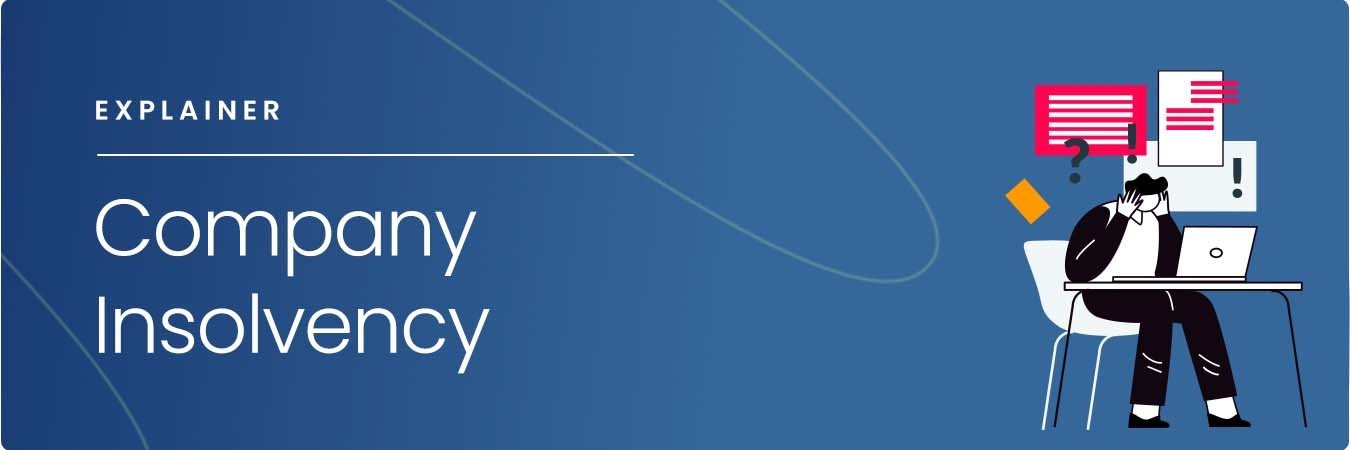The Main Principles Of Insolvency Practitioner
The Main Principles Of Insolvency Practitioner
Blog Article
Getting My Insolvency Practitioner To Work
Table of ContentsThe Best Strategy To Use For Insolvency PractitionerThe Basic Principles Of Insolvency Practitioner Things about Insolvency PractitionerThe Only Guide for Insolvency PractitionerIndicators on Insolvency Practitioner You Should KnowAn Unbiased View of Insolvency Practitioner6 Simple Techniques For Insolvency Practitioner
Insolvency is when liabilities are above the value of the business, or when a borrower can not pay the financial debts they owe. A business can become insolvent as a result of a number of scenarios that cause bad cash money circulation. When confronted with bankruptcy, a service or person can get in touch with financial institutions directly and restructure financial obligations to pay them off.
Company owners might contact financial institutions straight and restructure financial obligations into even more convenient installations. Lenders are normally open to this technique since they want to be settled and prevent losses, also if the payment is on a delayed timetable.
The owner develops a proposal outlining exactly how the financial debt might be reorganized utilizing expense decreases or other plans for assistance. The proposal shows lenders how business may create adequate capital for rewarding procedures while paying its financial debts. Usually, a forgiven financial obligation might be considered revenue by the Internal Income Service (IRS).
The Best Guide To Insolvency Practitioner
When an organization has to pay boosted rates for goods and solutions, the business passes along the price to the customer. Instead of pay the increased cost, many customers take their service somewhere else so they can pay less for a services or product. Shedding customers causes losing income for paying the business's financial institutions.
The organization may end up paying large amounts of money in problems and be unable to continue operations. When procedures stop, so does the business's income. Lack of revenue causes unpaid expenses and lenders asking for cash owed to them. Some business end up being insolvent due to the fact that their products or services don't progress to fit customers' altering needs.
The Buzz on Insolvency Practitioner
Expenditures surpass profits and expenses remain unpaid. Kinds of bankruptcy include cash-flow bankruptcy and balance-sheet bankruptcy. Cash-flow insolvency occurs when a company has the possessions to cover their debts yet they are in the incorrect kind, such as property rather than fluid funds. Balance-sheet insolvency, on the various other hand, suggests an absence of possessions in any type to cover debts.
The internal revenue service states that an individual is bankrupt when the complete responsibilities go beyond complete possessions. Insolvency Practitioner. A personal bankruptcy, on the other hand, is an actual court order that depicts how an insolvent person or business will settle their lenders, or how they will certainly offer their assets in order to make the settlements
More About Insolvency Practitioner
When a business or person is bankrupt, they can not meet their economic obligations. Bankruptcy is not the same as personal bankruptcy, although a company that has ended up being insolvent may submit for insolvency. Bankruptcy is the state of not being able to pay your obligations while personal bankruptcy is a legal process to release your debts.
Recognizing the elements that can cause insolvency, such as overspending, can assist you protect against insolvency and its repercussions.
Insolvency Practitioner - The Facts
It is well recognized that supervisors and police officers of corporations (and supervisors you could check here of restricted obligation business) owe fiduciary duties to their organizations and their investors (or participants). These fiduciary commitments are defined by state statutes and, though there are variations from one state to another, they generally include a duty of loyalty and a task of care.
The duty of care needs supervisors and officers to exercise diligence, to make informed decisions, and to act in great confidence so that their actions are in the ideal rate of interest of the firm. Past the scope of this discussion, some states allow these duties to be limited either by so keeping in mind in the organizational documents or conforming with other demands.
The Best Guide To Insolvency Practitioner

Beware regarding providing investors advantageous therapy at the expenditure you could look here of lenders (e.g., licensing and moneying a reward or a supply redemption). Take care about favoritism between courses of shareholders. Clear up efforts to find out all the truths before taking a specific program of action; directors should genuinely think that any kind of choices made remain in the ideal interests of the corporation in its entirety (i.e., decisions will be reviewed in hindsight in light of the impact of such activities on the firm).
In any insolvency or insolvency case, repayments made to specific financial institutions at the expenditure of various other financial institutions can be clawed back, especially if there is some link between the business and the lender. Take into consideration proposing at a yearly investor conference (or any type of other meeting of investors) a resolution affirming that all prior organization decisions and activities taken by the directors and policemans of the firm were taken in good faith after an exercise of affordable care.
Insolvency Practitioner Things To Know Before You Get This
Totally divulge any kind of individual or organization partnerships with celebrations beyond of deals including the company to stay clear of the appearance of a dispute of interest. In reviewing potential fund increasing deals or a sale of properties of the struggling corporation, understand that these purchases may be looked at later on because of any subsequent development of supervisors' fiduciary tasks to consist of creditors.
Report this page